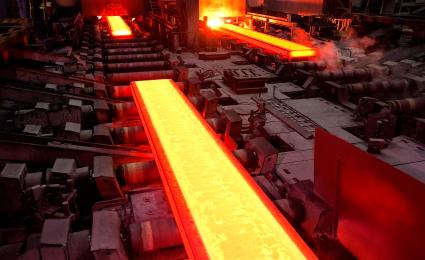Interested in other interviews of the series? Click here!


Digitalizing the heart of every construction site: lookahead planning
Intuitive 3D model-based technology can significantly improve construction project outcomes
specter automation has created a 3D model-based assistance system that brings a variety of data to construction site managers in an intuitive way. It hopes its software can become “the best construction manager in the world”.
This interview is part of the series " Construction Startup Radar ".

"Companies are now paying more attention to how a tool can be seamlessly integrated into their existing software landscape or processes."
Please introduce yourself and your team and tell us about your background.
Hi, I'm Oliver Eischet, CEO and co-founder of specter automation. We’re a construction-tech startup from Cologne, Germany, that has developed the world's first model-based assistant for construction sites. We digitize the heart of every construction site: lookahead planning. Together with construction management, we plan what, when and where tasks will happen on the construction site in the coming two to six weeks as well as who is responsible. Based on this, we automate most of the daily organizational work, from communication, documentation and construction progress monitoring to performance reporting and billing. I don’t come from the construction industry myself but grew up in a family of entrepreneurs. I studied at the WHU – Otto Beisheim School of Management, before working in strategy consulting for a while and then moved to Switzerland for my master’s in management at University St. Gallen. It was during that time I got to know and love the construction industry in a roundabout way.
Please describe your company and business model. How do you differentiate from similar startups?
With specter, we have developed the world's first model-based assistance system for construction sites. Three things set us apart from other construction software. Firstly, we are entirely 3D model based. Digitalization, especially in the construction industry, often fails due to a lack of intuition and the associated acceptance of the main users. In construction, users are particularly demanding because it is inherently physical – digital solutions can appear foreign at first glance. A 3D model makes digitalization tangible as well as acting as an intuitive database visualization, which significantly increases acceptance. This also leads to the second differentiator: specter is a horizontal integration platform, not an isolated software progam. We build upon existing data from planning and pre-construction, including 3D models, schedules, 2D plans and calculation data. We then integrate this data into the 3D model, providing accessible information for those on the job site. For companies that do not have this data, we help with the creation. Our minimum requirement for processing in specter is simply a 2D plan, which every construction site in the world has. And thirdly, this data in turn helps to automate monotonous and recurring organizational processes in construction management – from status tracking, updating schedules, and communicating with subcontractors and clients, to data analysis, performance reporting, and invoicing. specter can save the construction team about 40% of its time and provide all other project participants with a live overview of their construction sites. The result: an incredible 70% of projects that use specter are on schedule, compared to the 72% of delayed projects worldwide.

How did you come up with the idea for your company?
Looking back, you could say it all started in kindergarten. In the summer of 2020, I bumped into Max, my best friend from childhood. Max studied mechanical and automotive engineering, before moving to Silicon Valley to work in autonomous driving. Max told me about a self-built prototype for teleoperation, the remote control of devices via mobile internet, and together we thought about application areas. That's how we came across the construction industry, or rather the remote control and prospective automation of tower cranes, without realizing this was the entry ticket to something huge. We talked to the biggest crane manufacturers in the world, who seemed convinced, but when we approached construction sites and site managers, nobody was interested. We quickly learned that the construction industry was struggling with completely different, fundamental digitalization issues. Whilst the pre-construction phase seemed quite advanced in terms of data and the use of 3D models, on the job site people would still work with pen and paper and take decisions based on gut feeling and experience.
So instead of blindly copying and pasting an existing technology to the construction industry, we decided to choose a new approach: co-creation. We won three heterogeneous construction companies as partners to understand problems and develop solutions, completed internships as site managers to get our own hands dirty, and founded specter automation around a year later.
Who are your key clients?
Construction companies and Project supervisors.
What has your experience of the funding process been like?
In recent years, the construction industry has been attracting more and more attention – both from founders and investors, particularly venture capitalists. Every investor is now aware that the world's second-largest industry is under-digitized and offers enormous potential to create new companies. This is precisely why we are receiving a lot of inbound interest from German, European and, above all, American investors. If you can prove that construction doesn’t always necessarily mean project business with long sales cycles, you can overcome the typical arguments against investing in this area. Ultimately, however, one thing counts above all: that users love your product.
How will the construction industry look in 2025?
In addition to the emerging waves of consolidation and the increase in mergers and acquisitions, I believe we will see a much more partnership-based approach. In our software domain, this will lead to more cooperation on and alongside construction projects and thus to software integration. I believe less in the "single app store" that covers all solutions and much more in a toolbox that varies from construction project to construction project and combines similar solution providers with different focuses. An integrated software landscape would then lead to several parties involved in a project benefiting from continuous information flows and transparency, which should ultimately significantly increase the efficiency of processes on and off the construction site.

What role does digitalization play in the construction industry?
Digitalization is revolutionizing the construction industry, serving as a catalyst for innovation, increased productivity, and safety improvements, while paving the way for new construction solutions. I believe that BIM is the most disruptive digital tool in the industry and encapsulates all the key ConTech trends. The approach of virtually and collaboratively designing what will later be built on site not only shows an outstanding increase in reliability and predictability by eliminating conflicts early on, but also creates an ideal database that can be enriched with as-built data from the construction site for facility management. Access to extensive data through intuitive digital tools enables project managers to fully understand all aspects of a project and improve decision-making from the design phase through to completion. This data collection and analysis covers everything from material usage to labor efficiency, providing key insights that improve project outcomes.
Which key trends do you see in this context?
This is more of a systems-based approach rather than a solution-oriented one.
There is a clear shift towards a greater focus on management information systems, databases, and artificial intelligence . Companies, especially leading general contractors, are using these technologies and exploring how they can improve decision-making and operational efficiency across the business. The approach to technology adoption has also evolved: Instead of just looking for a specific tool to digitize a particular process, companies are now paying more attention to how a tool can be seamlessly integrated into their existing software landscape or processes. This change in perspective ensures that new technologies complement and enhance existing processes rather than disrupt them. This development also offers a great opportunity for software companies. Those that can effectively integrate their solutions into existing processes have the chance to gain a strong and lasting presence in companies' data structures.
What is your company vision (5 years)?
Our aim is to become the Google Maps for the construction site. We want to provide site managers with the best possible suggestions as to which tasks and trades make the most sense at which parts of the building and at what time to adhere to project deadlines. We aspire to be the best construction manager in the world. We combine the experience of hundreds of construction projects, of numerous types with various companies in different countries – an experience no individual construction manager in the world could have.
To this end, we have already built up what is probably the finest-grained database on construction processes in the world. With roughly 20,000 tasks per project, we have demonstrated scale and precision in managing complex construction activities and are now about to leverage our extensive experience and data-driven insights. We use generative AI to answer text and speech prompts from our users on site, which allow users to access, visualize, or create information seamlessly within the platform. specter offers a new generation of construction management software that works without clicking buttons.
As a startup, what is your next goal?
Our next goal is to transition from being a product-focused tech startup to becoming a scaling-focused business. This shift involves expanding our reach and operational capacity to deliver our solution to a broader market. With current activities in Germany, Austria, Switzerland, and Japan, we’ve already demonstrated the ability to quickly land and expand in international markets. We want to accelerate this expansion while strengthening our customer relationships with SMEs and leading general contractors to ensure sustainable growth and increased market penetration.
What partners do you need to achieve these goals?
For specter's next chapter of growth, the main aim is to build on existing resources and strengthen them in a targeted manner. We are incredibly proud of our team of almost 30 people and our company culture. Nevertheless, we need significant expansions for the next steps, particularly in the go-to-market team, in order to scale faster. Of course, we are always on the lookout for investors who share specter's vision and want to build a multinational company with our unique group of shareholders, as well as mentors to accompany us along the way.
Finally, without our customers and, above all, our users, we would not exist. As our toughest critics, providers of ideas and partners, they are the cornerstone of our company.
What investments are necessary for your clients to get started working with your solution?
The investment to work with specter is simply to send us a 3D model of a building project or, if that’s not available, a 2D plan. From there, we fully support the process of integrating other data sources or creating them together with us. One construction site, one site manager as the core user, and a small monthly investment is all we need to fully coordinate the construction site digitally. Instead of having to meet complicated requirements, we live by the mantra "just get started" and provide active support at all times. This approach ensures the benefits of our software extend beyond simple cost savings, offering transformative impacts on project management and overall project outcomes.
On a final note: What is your favorite story about startup life in the construction industry?
One of my favorite stories is certainly how software is perceived on the construction site, especially in the early phases. During our very first pilot project in the summer of 2021, I often used our software in the first few weeks on site to carry out stress tests and eliminate teething problems. The project´s foreman became increasingly familiar with the software and gave me some critical feedback. One of the main disruptive factors for him was that Tuesday was constantly shown as a "0" in our weekly schedule, while everything else was going well. What sounds ridiculous at first glance kept giving the foreman the feeling that our software was "not good enough" and "that we wouldn't even be able to solve such a trivial problem". I spent weeks analyzing this problem with my technical colleagues, running tests, and trying out different settings. In the end, it was a translation error in Google Chrome that made life difficult for us but showed very clearly the challenges that digital solutions must overcome on the construction site.
Name: Oliver Eischet, Co-Founder/CEO
Company: specter automation GmbH
Website:
specter-automation.com
Number of employees: 28
Headquarters: Cologne, Germany
Stay up-to-date with the newest happenings in the world of digital construction by signing up for our regular newsletter. Get news on our current featured startup and the latest relevant updates delivered straight to your inbox.






